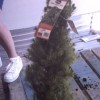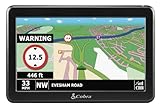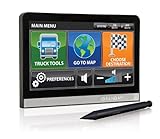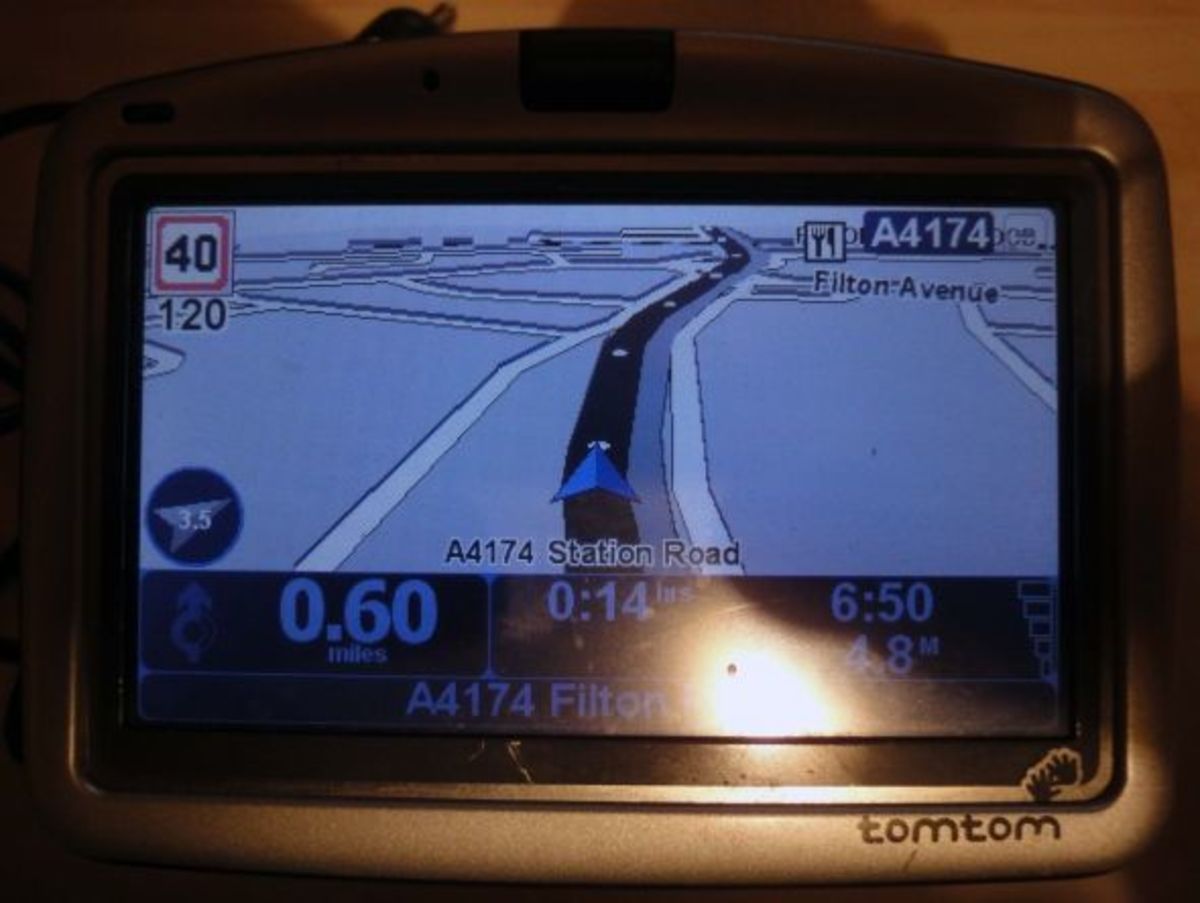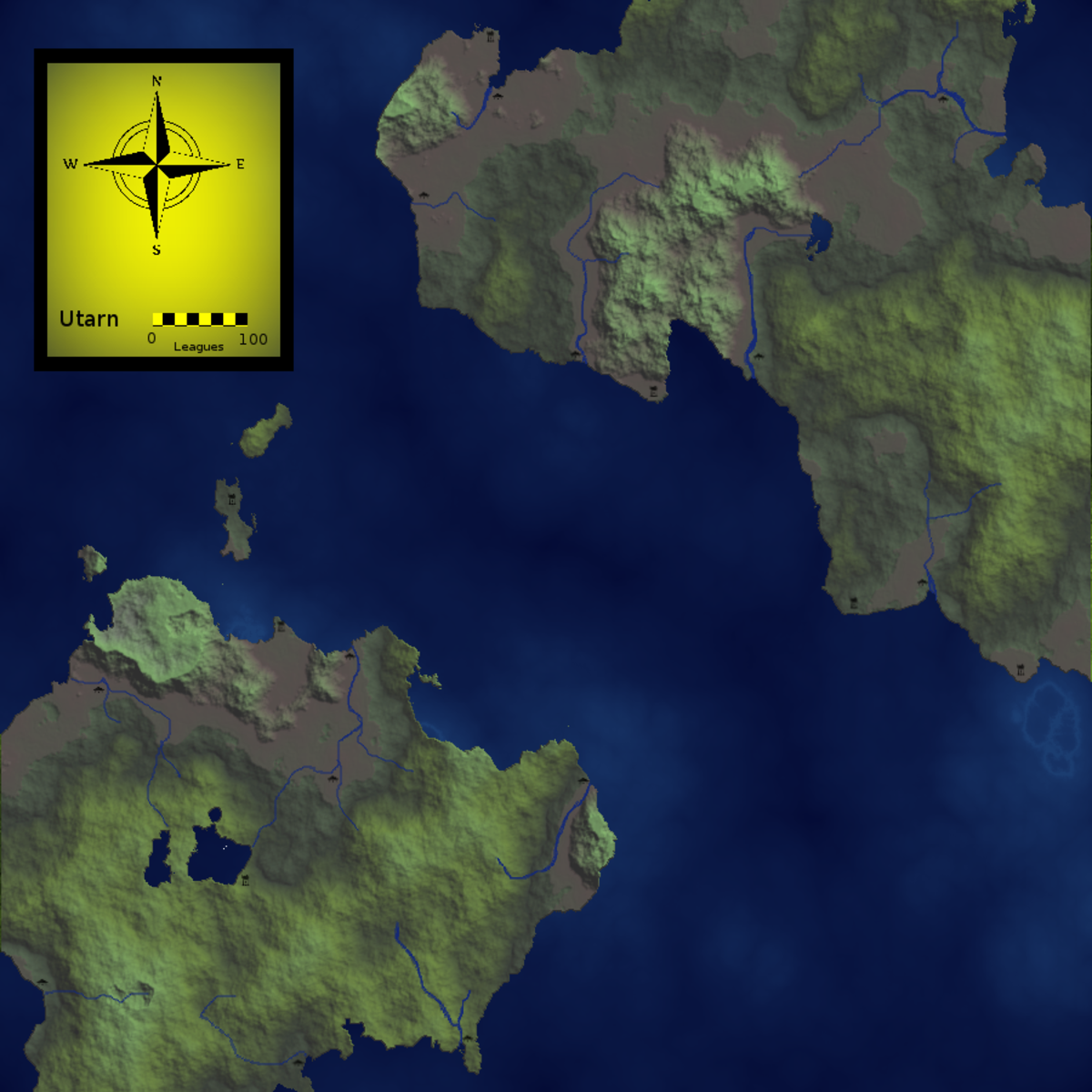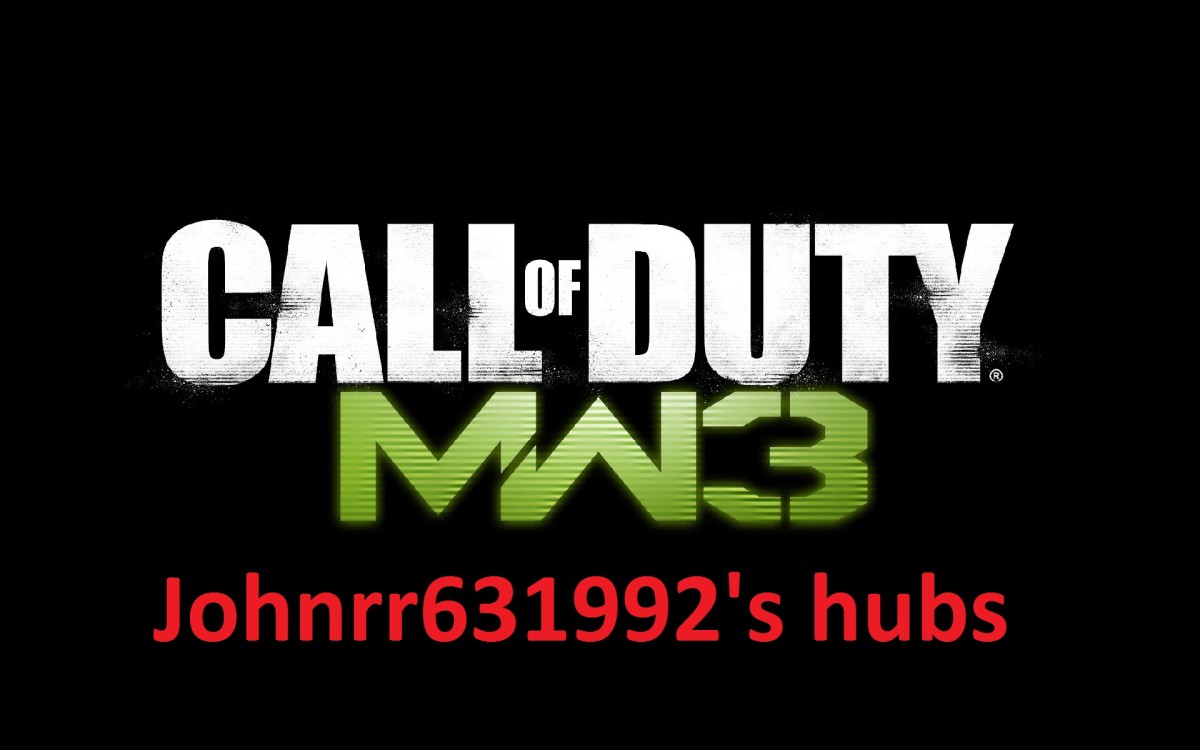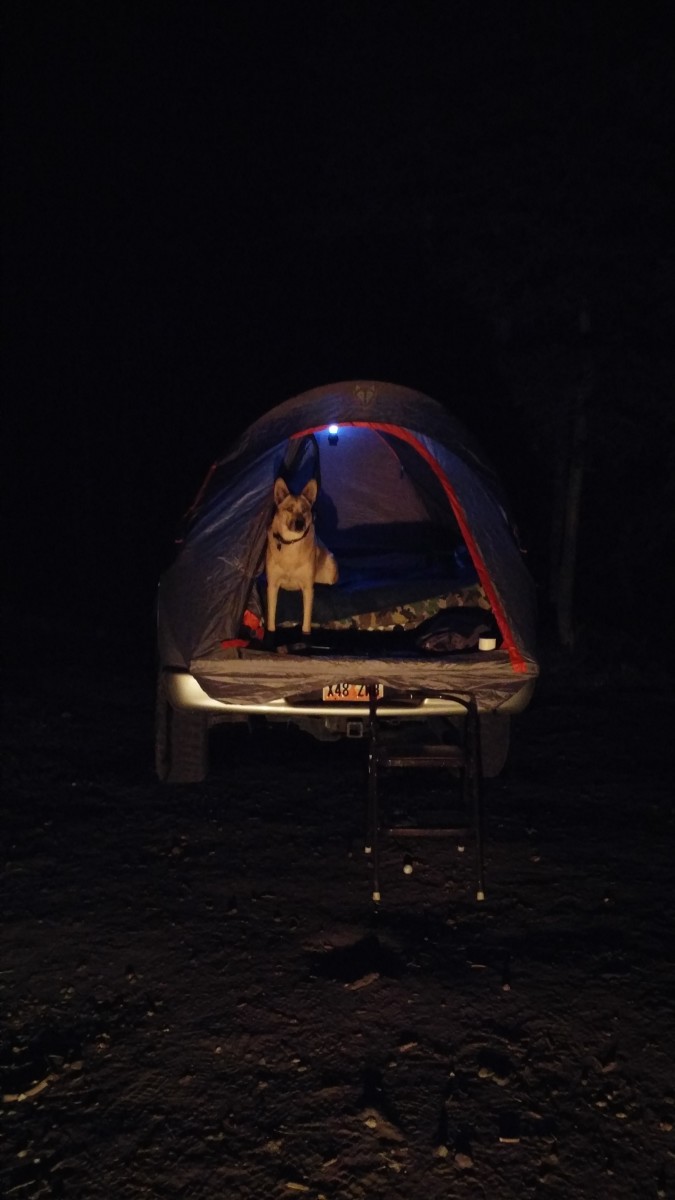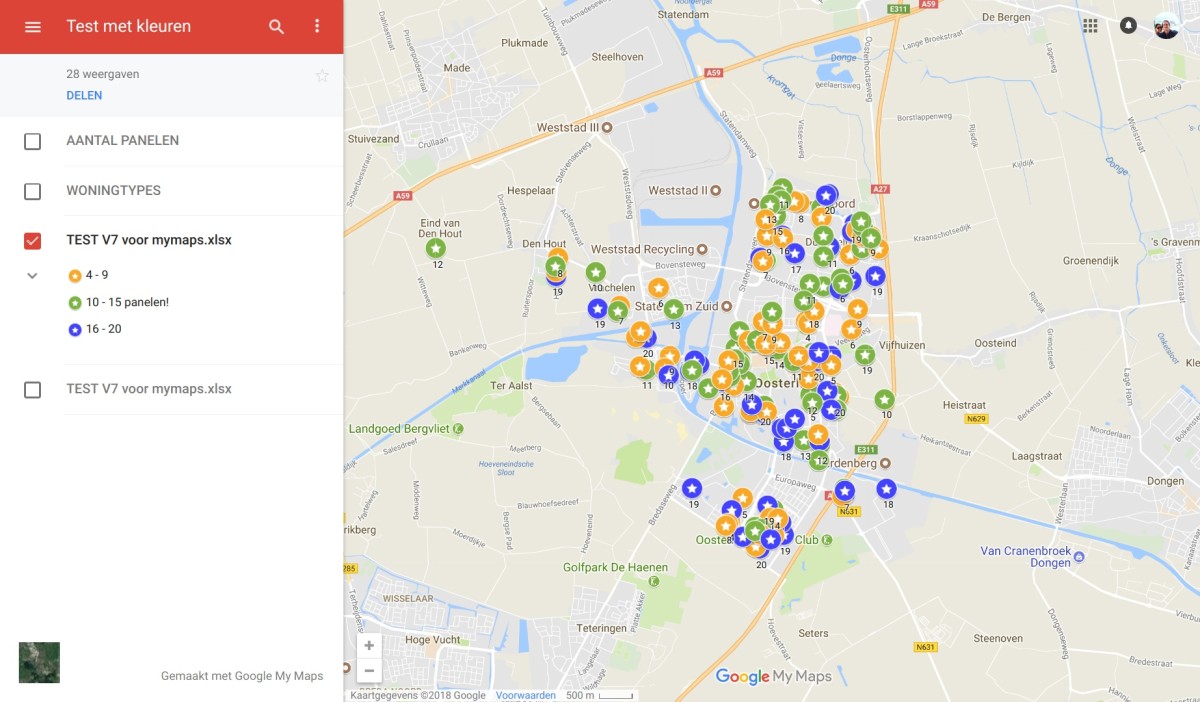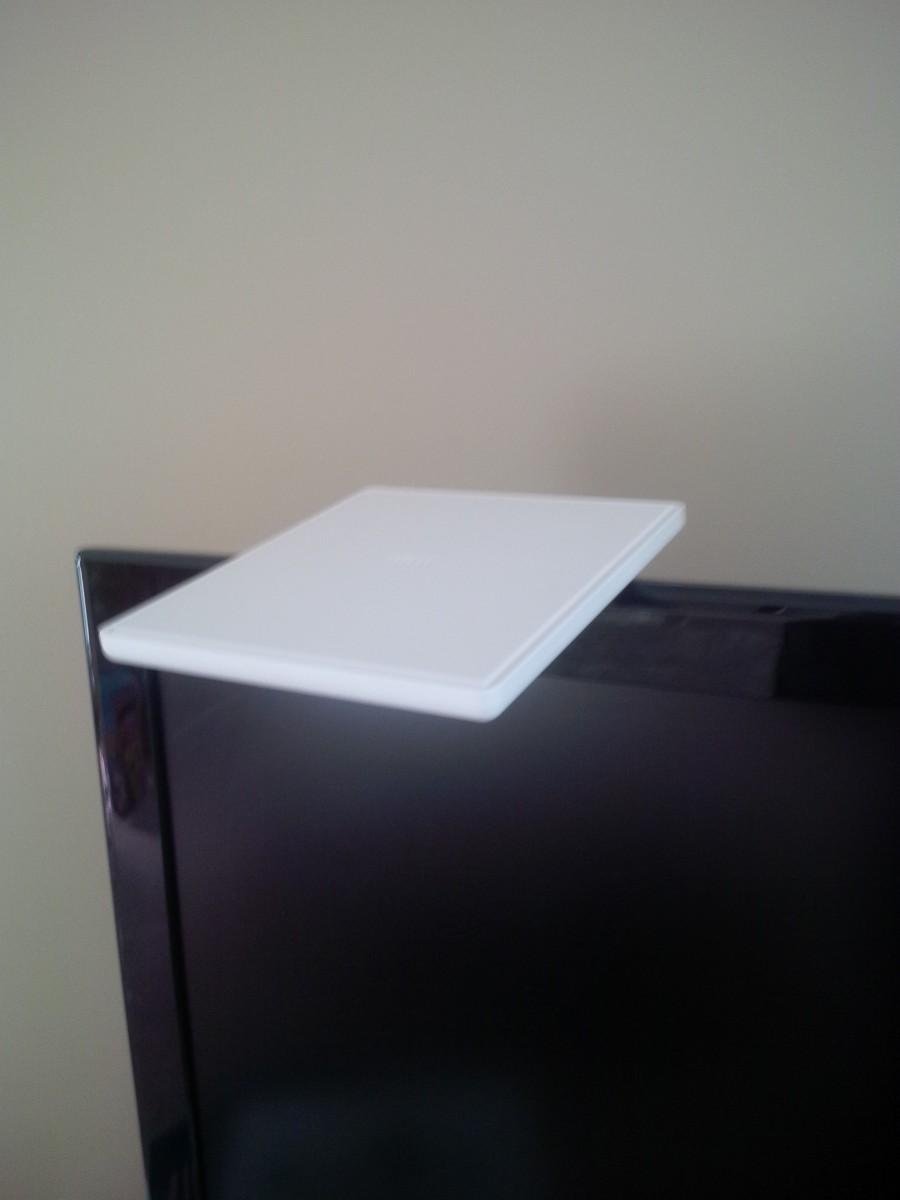Trucker GPS Reviews
Choosing the Wrong GPS Can Cost You More Than You Save
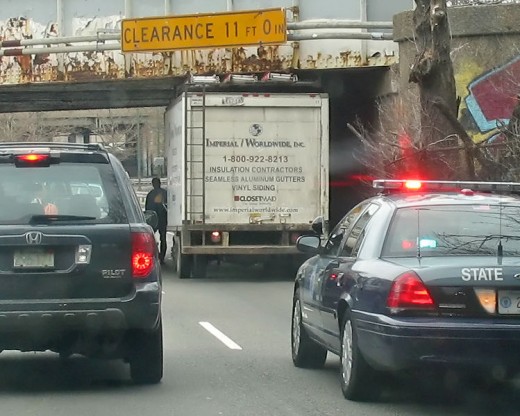
Truck GPS vs. Automobile GPS
Trucker GPS systems are 2-3 times more expensive than a car GPS. You might wonder why. If you are a trucker there are things you need to be aware of that most car drivers never notice, or need to notice.
Have you heard about that truck driver who tried to take his semi through the McDonald's drive through? I've heard it so many times that I'm sure it must be an urban legend. The trucker who pulled up under the 11'0" clearance at the hotel across the street from my last orientation though was real. They had photos to prove it.
A standard semi with a box trailer is 13'6" high. They don't fit in the drive-thru! They also don't fit under many older bridges in areas like Chicago or New York. A trucker GPS keeps track of things like low clearances and warns the trucker ahead of time if he is approaching a bridge that is too low, or one that is not rated for the weight of his truck. Most will do a decent job of giving you an alternate route to avoid the problem.
There are also many state highways that do not allow trucks over a certain length. These "no truck routes" are also programmed into a trucker's GPS. Not to mention weigh stations and truck stops.
If you are a truck driver, it's important to spend the extra money to get a good GPS with accurate information FOR TRUCKS rather than try to save a few bucks now on a car GPS and then pay the rest (or more) in fines for being someplace your truck isn't supposed to be.
Garmin GPS for Professional Truck Drivers
Garmin is my favorite GPS. I was pretty resistant to getting a GPS and fought with a couple of my students about the need to have one. One of my students was a very clever guy. Instead of arguing with me (which never works) he stopped by a GPS display at a truck stop and started fiddling with the units there. "They work?" I'd looked at them before, but they only had movies when I looked. These were actually set up so you could play with them. I played for at least half an hour.
Then he went home for a few days and came back with a new "toy" for me... the GPS from his car. By this time he was driving great, but I still had to sit up and watch. It was boring. But now I had a new toy to play with and I got to test out this little GPS while he drove. By the time he got off the truck, I had to have one of my own.
I started off with a Cobra, based on recommendations, but didn't like it. Love's return policy allowed me to trade the Cobra model in on the Garmin.
Two reasons I prefer the Garmin, which may not be relevant to you. First, I'd played with the car version so much that I was really comfortable with the interface and how eveything worked on it. The maps were better to look at than the ones on the Cobra. Both models have updated maps that you can download.
I tried the download for the Garmin and used up all my bandwidth for the month to do it. But then there was a problem with the file and I couldn't afford to download the maps again. Next month the free map update had expired. I'm told that the map download is what makes the Cobra better than the Gamin, but since I was only looking at the pre-installed maps on both models, let's just say Gamin does the map better.
As far as the accuracy of the map it was very good. The only real problem is that it doesn't seem to check until you turn onto a road if it is a truck route. It will get you turned around before you get to the no truck section of the road, but it's a time waster. You should double check the routing with whatever other maps or customer directions you have. This was only a problem a couple times when I was well off the Interstate.
The other reason I like the Garmin better is because of the size. It's big enough for me to see just fine, but doesn't take up too much space on the dash. I was able to mount it with velcro right on top of radio. I found the larger screen on the Cobra got in the way too often. The large print also did not work well with my eyesight/glasses.
The Garmin GPS has the NTTS directory built into it. Another great thing about having a GPS is when you breakdown or when you want to find the closest truck stop or truck wash after your truck is empty. It was great for finding little out of the way places close to where I was. Sometimes close enough to get there without starting my electronic logs even! One drawbadk is they don't include Blue Beacon truck washes for some reason beyond my understanding. You can however add any location you are at, so that problem was fixed somewhat as I went along. The same with newer truck stops.
This Garmin GPS also has a bluetooth feature so you can use it with your cell phone for hands free calling. I didn't try this out since I already had a bluetooth headset and a bluetooth CB, but if you don't have a bluetooth yet, it might be a plus... kill two birds with one stone and keep yourself from getting a ticket for talking on your cell phone. The voice is not very loud on the unit, so I would not be surprised if phone conversations were difficult or impossible while the truck was running.
Cobra GPS for Professional Truck Drivers
The Cobra GPS gets points for name recognition from truckers because Cobra also builds and sells so many CB's. I'm not sure making CB's is a good reference for making a GPS, the one being audio and the other being visual.
As I mentioned above. I did not keep my Cobra GPS in part because the maps were not very good. I suppose you might say "pretty".
One feature that the Cobra had that might come in handy was a logbook feature. It tracks hours and will alert you when you are getting close to the end of your driving time. It looked like you might be able to do an electronic log on the GPS but it didn't quite work yet when I was using it (early 2009).
What most drivers I've talked to love about the Cobra is the large screen. While I found that to be a distraction, many drivers love it because the maps are larger and easier for them to read.
Newer Cobra models also boast a speed trap and red light camera alerts. I don't know how they could know, but one of the reviewers at Amazon saw it work.
The main drawback is a clunky user interface and less than clear instructions. It will help if you have a co-driver and have a chance to use the GPS as a passenger for a few days to learn the ins and outs.
Rand McNally GPS for Professional Truck Drivers
Rand McNally are the people who make the maps, so they must make a good GPS.
I wish I had tried out the Rand McNally as well. Some of the features that might make it better than the Garmin:
- Loudspeaker. If you like to hear the thing, then the speaker is probably better.
- Better maps. I'll buy that argument, although I didn't have a problem with the Gamin maps, they are the people that make the maps and so they are probably better. Garmin doesn't include rest areas and Rand McNally does.
- Free lifetime updates. The Garmin only give you the first one free and even that one has a time limit to get it downloaded.
- They use the Trucker's Friend instead of NTTS directory for their truck stop and truck services information. You'll have to decide for yourself if that's a plus or minus.
- The 7" model has a notepad feature so you could write your load information and refer back to it on the GPS.
Cons vs. the Garmin:
- Routing via points or adding stops is more complicated and doesn't show you the total miles. (Garmin will give you total miles, but it's not as easy to get to as I'd prefer there either.)
Do You Really Need a GPS?
I look at a GPS a lot like I look at steel toed boots. Do I really need this? I don't. I've been to I don't know how many warehouses in flip flops and have yet to have a forklift run over my toes. I drove for over a decade without a GPS and never hit a low bridge.
When I'm wearing my flip-flops I am more cautious. I'm not saying that proper safety gear is a bad idea, but sometimes it causes people to be over-confident. I think this is particularly true for new drivers and their GPS devices. They seem to think that the GPS is never wrong. And many drivers have relied so heavily on their GPS that they forget to read the clearance signs and end up stuck under a low clearance anyway. Even if you have a GPS, you should still be paying attention to the road and reading the signs.
And don't think that a GPS is a replacement for learning how to read a map or make out a trip plan. The GPS is great for what it does, but it is not good for higher level planning... by that I mean how to get from coast-to-coast, or figuring out what town you are going to stop at for the night. For those kinds of tasks the old trucker's map is really much better and faster. Besides, the GPS is a map... just an electronic map. The better your map reading skills are, the more useful your GPS will be.
That being said. Most older (as in experienced) drivers I know don't think they need a GPS. I would have agreed a year or two ago. Today, I won't drive my truck without one. Yes, I know, you know how to read a map. That's great. The GPS is a map! Not only that, the GPS is the right map for where you are at any given moment. It's not a state map when you are suddenly forced off the highway to get around an accident. It's a local street map.
If I paid $10 for every time my GPS helped me route around a traffic jam, or kept me from missing the unmarked street to find a customer, or even helped me get turned around and find my way back to that unmarked street... well, it paid for itself in the first few months after I got it. I definitely recommend getting a GPS for your truck. (And don't forget to write it off on your taxes.)

